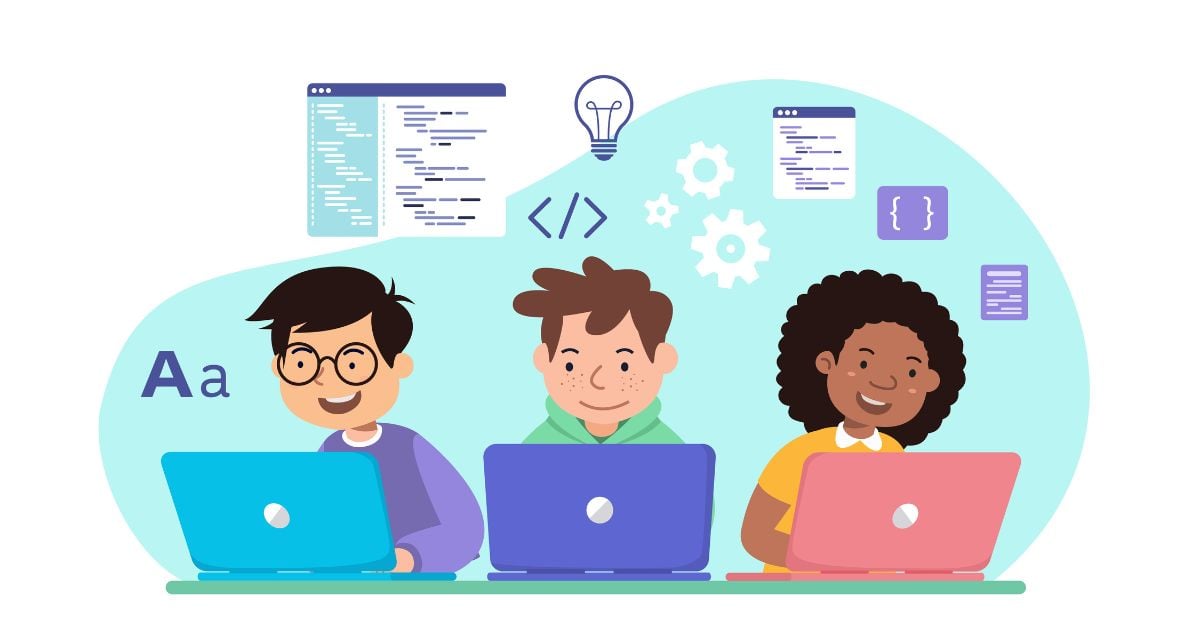Learning to code is all the rage these days, and for good reason: Code is prevalent in virtually every aspect of our daily lives. This is why I’m so excited about the potential for the next generation to do something really incredible with code.
While some may view online banking and shopping apps as a simple convenience, computer programming is having a profoundly positive impact on our world. All of the amazing innovation happening in technology starts with someone writing code.
We’re seeing life-saving advances in fields as diverse as robot-assisted surgery, food and farming, environmental conservation, and space exploration. Coding is literally writing the future of our planet and species. That’s awesome!
This is why having the ability to code has never been more important for today’s youth. Whether they’re just starting school or entering the job market, knowing how to code has become an essential if not crucial skill to have in your toolbelt.
According to statistics from the US Department of Labor, “software developers are expected to see the third-largest increase in jobs of any occupation over the 2021−31 decade.”
Getting familiar with code is crucial for kids who will be entering the workforce in the decades to come. The good news is that coding is fun for kids, and thanks to programs like those below, a coding education has never been more accessible.
Coding Programs
The best coding programs teach children of all ages and experience levels how to code while making the process fun, interesting, and motivating. At its best, coding empowers young minds to become makers of technology. By bringing their imagination to life, coding gives them the ability to become creators and not just consumers.
In alphabetical order, here are some coding programs to consider for your child:
Bootstrap crafts free, research-based, integrated Computer Science and Data Science modules for Math, Science, Business, and Social Studies classes for grades 5-12. It’s one of the largest providers of formal CS education to girls and underrepresented students nationwide.
Codecademy helps children learn programming languages with lessons, quizzes, and projects designed for real-life scenarios; a hands-on learning environment designed so that you can write real code in your very first lesson.
CodeMonkey is an online platform that teaches kids real coding languages like CoffeeScript and Python. It doesn’t require prior coding experience and is designed for schools, clubs, and home use.
Code.org is an education nonprofit dedicated to the vision that every student in every school can learn computer science as part of their core K-12 education, focusing on increasing participation by young women and students from other underrepresented groups.
Scratch is the world’s largest coding community for children and a coding language with a simple visual interface that allows young people to create digital stories, games, and animations.
Khan Academy is a non-profit organization offering computer programming courses in JavaScript, HTML/CSS, and beyond.
Tynker is the world’s best learning platform for introducing kids and teens to the joy of coding. Our unique hybrid online approach with expert guidance from live coaches guarantees kids will get off to a fast, confident start on a successful coding journey. Kids as young as 7 can start coding with our unique story-based and visual block coding modules to easily create their own games, apps, art, music, animations, and more.
In learning how to code, children develop valuable, life-long skills like creativity, critical thinking, problem-solving, organization, time management, and goal-setting.
The right coding platform can foster an environment where your child can explore their curiosity and understand how technology shapes the world around them.
It’s estimated that there are roughly 700,000 open computing jobs but only 80,000 computer science graduates every year. So let’s get coding to give your child an edge in school and beyond!





